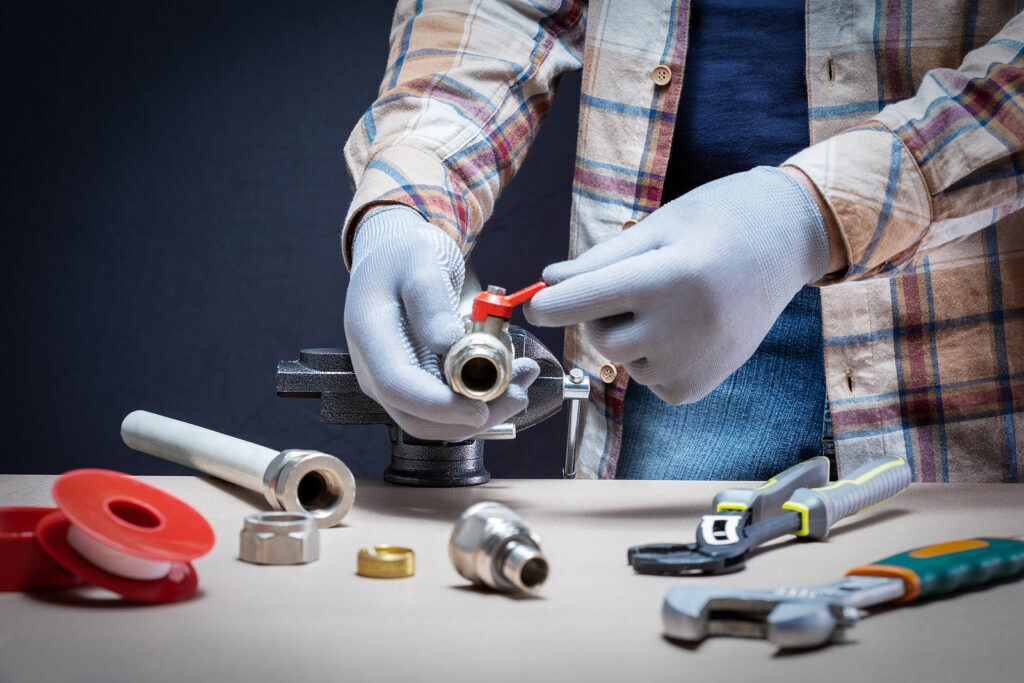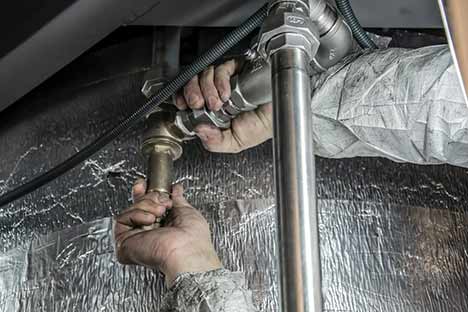Critical Fixes: Steps to Manage Issues Until Help Arrives
Book An Estimate NowDo you find yourself on the lookout for critical info concerning Expert Tips for Emergency Plumbing Repairs?

Pipes emergencies can strike any time, triggering tension and possible damage to your home. Whether it's a burst pipeline, a blocked drain, or a dripping faucet, knowing just how to handle the situation till a professional plumbing professional shows up can save you from more problems. This article supplies important emergency situation plumbing tips to assist you mitigate damages and restore control throughout a plumbing situation.
Shut off the Water Supply
The primary step in any pipes emergency situation is to shut off the water. For localized concerns, such as a leaking tap or toilet, shut off the valve near the component. When it comes to a major leakage or burst pipeline, locate your home's primary water shut-off shutoff and turn it off quickly. Understanding the area of these valves beforehand can save beneficial time throughout an emergency.
Turn off Your Water Heater
In specific emergency situations, such as a burst pipeline, it's important to shut off your hot water heater. This prevents overheating or damages to the device when water stops streaming. Switch off the power supply to the water heater (electrical or gas) and let it cool off to stay clear of potential dangers.
Momentarily Stop a Burst Pipeline
A burst pipe can cause substantial water damage in minutes. To alleviate the concern:
Call a specialist plumbing professional immediately to deal with the issue completely.
Have an Emergency Situation Plumbing Kit
Prepare a basic plumbing emergency kit to manage small issues efficiently. Your set needs to include:
Having these devices on hand can make a significant difference in your capability to take care of emergency situations.
Unclog Drains Securely.
A clogged drain can be a discouraging and unpleasant problem. Right here's exactly how to tackle it:.
If these methods don't work, avoid making use of too much pressure, as it might get worse the clog.
Take Care Of Overflowing Toilets.
An overruning commode can trigger instant turmoil. Right here's what you ought to do:.
Address Little Leaks with Short-lived Solutions.
Little leaks can quickly come to be considerable troubles if left untreated. Utilize these temporary solutions till expert help gets here:.
While these repairs aren't permanent, they can assist minimize water loss and damages.
Handle Frozen Water Lines Carefully.
In chillier climates, frozen pipes are a common emergency. If you suspect an icy pipeline:.
Know When to Call a Specialist.
While quick fixes can help briefly, particular plumbing issues need prompt specialist attention. Call a plumbing technician if:.
Quickly calling a specialist guarantees the problem is resolved properly and stops more complications.
Stop More Damages.
Taking quick action to lessen damages can save you time and money over time. Right here's just how:.
Final thought.
Pipes emergency situations can be frustrating, yet with the right knowledge and tools, you can manage the circumstance properly till aid arrives. By turning off the supply of water, dealing with small leaks, and using short-term repairs, you can reduce damage and keep your home safe. Keep in mind, these suggestions are short-term services; always speak with a certified plumbing to deal with the root cause of the problem. Preparation and fast reasoning are your finest allies in any type of plumbing emergency situation.
8 Helpful Tips for Managing Plumbing Emergencies at Home
If your plumbing system hasn’t failed once, wait for it because almost everyone has a story to tell. Sometimes, it could be simple emergencies such as a leaking pipe, a blocked cistern, or even a big burst pipe. In situations like this, you need to have some handy tips to save you some money and from possible damages.
Take care of minor issues early.
Sometimes, you could have avoided an emergency by taking proactive measures while it was still early. Some major plumbing emergencies can be a result of an ignored minor issue. We recommend that you have items like plumbing tapes and other related items. A plumbing tape can allow you to manage minor leaks before the plumber arrives.
Cut off the water supply.
This tip is essential in almost any type of leakage problem. For problems like minor leakages in the toilet or kitchen, turn off the supply that takes water to the affected pipes. If the leakage is a major pipe, you must shut off the supply valve to the entire building. This will help you avoid flooding your home and neighbors if you share a flat.
Know your plumbing system
Folks typically move into a new apartment without understanding the water supply around the building. This can prove disastrous if a water emergency arises and the plumber is far away. The previous tip will prove useless if you don’t practice this one. More importantly, know where your water shut-off valve is located – you’ll need that knowledge to prevent potential home floods.
Have some common handy tools
There are lots of plumbing emergencies that you can handle without hiring a plumber. That’s why you must keep some tools available always. Some tools that you can use to fix simple plumbing emergencies easily include plumbing tapes, screwdrivers, thread seal tapes, plungers, pliers, tape measures, and rubber gloves.
Insulate your pipes from cold
You’ll save yourself from many plumbing expenses if you protect your water pipes from the cold. This is because of the harmful effects that cold weather can have on your pipes. During winter, your pipes can burst from being overly expected to freezing temperatures. So, make sure insulators are there to keep the pipes working correctly.
Avoid practices that will clog your toilet.
Many people indulge in practices that can damage the plumbing system of the entire building. One of these is when they use their toilet to dispose-off garbage. They flush all kinds of things, such as paper towels, bandages, hairs, female sanitary products, etc., down the toilet. This will block your toilet in the long run, incurring unnecessary expenditures. Dump such waste in the trash instead.
Check your dials regularly.
Sometimes, there could be leakages in your home without noticing them in time. So, constantly monitor your water meter dial. If the dial is reading when there is nobody using water, this is an indicator that there is leaking. Check for leaks immediately. Call a plumber as soon as possible if you can’t find any.
https://www.constructionplacements.com/8-helpful-tips-for-managing-plumbing-emergencies-at-home/

I stumbled upon that write up on Plumbing Emergencies: Tips on What To Do Before while exploring the search engines. Sharing is good. You won't know, you could be doing someone a favor. Many thanks for being here. Come back soon.
Schedule And Pricing